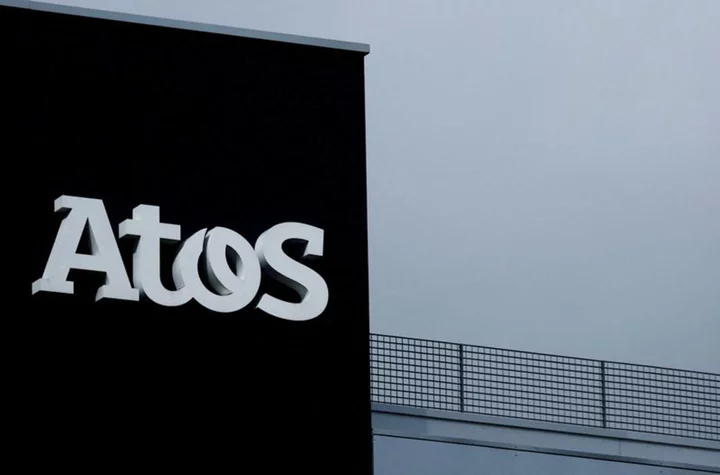
French IT group Atos shares soar as Onepoint buys almost 10% stake
Shares in IT services and consulting company Atos spiked by more than 16% on Thursday after Onepoint said
2023-11-02 17:56
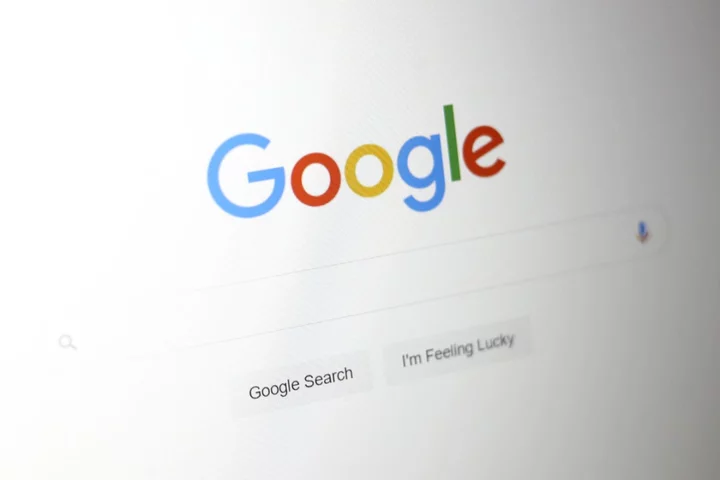
‘Is AI dangerous?’ UK’s most Googled questions about artificial intelligence
People in the UK want to know how artificial intelligence works, how to use it to make money and whether it will take their jobs, according to Google. The search engine company revealed the UK’s most googled questions about AI over the past three months ahead of Rishi Sunak’s AI summit. Here, PA takes a look at some of the burning questions the UK wants the answers to. What is AI? In a nutshell, AI refers to the training of machines to solve problems and make decisions in a way that is similar to how the human brain works. However, to boil AI down to a short definition would be to underestimate its complexity and variations. For example, “weak” or “narrow” AI is AI trained to perform specific tasks and enables technology people may be familiar with in their home, such as Amazon’s Alexa or autonomous vehicles, while “strong AI”, comprised of Artificial General Intelligence and Artificial Super Intelligence, refers to AI where a machine would have an intelligence equal to or surpassing humans. What is generative AI? Generative AI refers to models which can create something completely new based on the vast data they have been trained on. Recent examples of this include ChatGPT, where users can make requests such as “write a poem that features the Battle of Waterloo”. ChatGPT would then produce a new poem based on the material it had been trained on, in this case vast quantities of history books and poetry. How to make AI song covers? Much like the production of a new poem using AI, it is possible to create new music using models which have been trained on previously recorded sounds. However, this is proving tricky ground for human musicians who fear their work may be used without their consent to produce brand new creations, or even to imitate them. Spotify boss Daniel Ek told the BBC he thought there were legitimate use cases for the technology in music, but that it should not be used to impersonate real artists without their consent. He said there were three “buckets” of AI use in music: tools such as auto-tune, which he said was acceptable; software which impersonated artists, which was not; and a more controversial middle ground where AI-generated music was inspired by a specific artist but did not directly mimic them. How to make money with AI? The possibilities for making money using AI are seemingly endless, with people using it to produce music, books, essays, translations and much more. AI can also be used to streamline processes in existing jobs, producing presentations or documents in a fraction of the time it would usually take. However, the issue of copyright looms large over AI’s creative uses. Who created AI? While the concept has been discussed in art and culture for centuries, the 20th century will be remembered as the period when AI began to take practical shape. In 1950, wartime codebreaker Alan Turing published a paper called Computing Machinery and Intelligence in which he considered whether machines could think, introducing what became known as the Turing Test where a human would attempt to distinguish between the responses of another human and a computer. Six years later computer scientist John McCarthy coined the term “artificial intelligence” during the inaugural AI conference at Dartmouth College, while in the same year the first running AI software programme was created by Allen Newell, JC Shaw and Herbert Simon. Is AI dangerous? Tesla, SpaceX and X owner Elon Musk told the PA news agency at the UK’s AI Safety Summit: “I think AI is one of the biggest threats (to humans). “We have for the first time the situation where we have something that is going to be far smarter than the smartest human. “We’re not stronger or faster than other creatures, but we are more intelligent, and here we are for the first time, really in human history, with something that is going to be far more intelligent than us. “It’s not clear to me if we can control such a thing, but I think we can aspire to guide it in a direction that’s beneficial to humanity.” Will AI take my job? As with all technological advances, AI will change the way we work, making some jobs redundant but creating others too. Rishi Sunak recently attempted to assuage people’s fears, saying: “It’s important to recognise that AI doesn’t just automate and take people’s jobs. “A better way to think about it is as a co-pilot. “As with all technologies, they change our labour market, I think over time of course they make our economy more prosperous, more productive. “They create more growth overall but it does mean that there are changes in the labour market.” Read More Big tech poses ‘existential threat’ to UK journalism, survey of editors finds King warns of urgent need to ‘combat significant risks of powerful AI’ Kamala Harris arrives in the UK ahead of AI safety summit Study finds ‘deepfakes’ from Ukraine war undermining trust in conflict footage More than 500 potential cyber attacks logged every second, BT says AI being used to create child abuse imagery, watchdog warns
2023-11-02 11:16

Big tech poses ‘existential threat’ to UK journalism, survey of editors finds
The “anti-competitive practices” of big tech firms pose an “existential threat” to UK journalism, while the risks from AI-generated misinformation are “greater than ever before”, editors have warned. A poll by the News Media Association, a trade body for the newspaper industry, found 90% of editors believe Google and Meta pose a threat to the news industry. The Government has been urged to resist calls to water down the Digital Markets, Competition and Consumers Bill, which will force tech firms to pay news publishers for content used on their platforms. The Government must resist pressure from the tech platforms to water down the Digital Markets, Competition and Consumers Bill and pass this sensible legislation, which will help to level the playing field field between platforms and publishers and spur innovation and competition across the UK digital economy Owen Meredith, News Media Association Some 97% of editors said the risks posed by AI-generated misinformation are “greater than ever before” in the run-up to a general election, which is likely to take place next year. More than three-quarters (77%) of editors said news blackouts enforced by tech platforms weaken democratic engagement by limiting public access to trusted news. News Media Association chief executive Owen Meredith said: “The findings of our survey clearly show the huge level of concern from editors about the impact of the tech platforms’ activities on the sustainability of journalism. “The Government must resist pressure from the tech platforms to water down the Digital Markets, Competition and Consumers Bill and pass this sensible legislation, which will help to level the playing field field between platforms and publishers and spur innovation and competition across the UK digital economy.” Katie French, regional group editor at Newsquest, which owns many local newspapers, said: “While tech platforms have greatly enhanced our way of life by allowing unrestricted access to information and increased connection, they have severely impacted the business of news, and news brands such as my own have not been fairly compensated. “My titles have more readers than ever before in their history thanks to the global and national audiences our online content is exposed to. “However, we receive very little in the way of fair remuneration for the rich and high-quality service our content provides even by hosting our content or signposting readers to our stories through search engines. “Our very presence is giving credibility to these platforms that otherwise would be filled with clickbait, nonsense and unregulated information.” Original journalism everywhere should be protected Sun editor Victoria Newton The BBC’s plans to cut local radio provision and boost its online local news were also criticised, with 86% fearing it will “damage independent local journalism in the UK.” Sun editor Victoria Newton told the NMA’s Journalism Matters parliamentary reception on Tuesday: “Original journalism everywhere should be protected, as should the publishers that spend and invest in journalism. “I make a special mention for our vital local newspapers, without whom court cases and local democracy would go unreported. “These outlets should also be protected from the BBC’s expansionist activities, which risk driving them out of the market.” – A total of 30 editors responded to the online survey, which was carried out between August and September. Read More King warns of urgent need to ‘combat significant risks of powerful AI’ Kamala Harris arrives in the UK ahead of AI safety summit Study finds ‘deepfakes’ from Ukraine war undermining trust in conflict footage More than 500 potential cyber attacks logged every second, BT says AI being used to create child abuse imagery, watchdog warns ChatGPT and other chatbots ‘can be tricked into making code for cyber attacks’
2023-11-02 08:21

Boeing says 'cyber incident' hit parts business after ransom threat
By Valerie Insinna and Zeba Siddiqui WASHINGTON Boeing, one of the world's largest defense and space contractors, said
2023-11-02 08:19
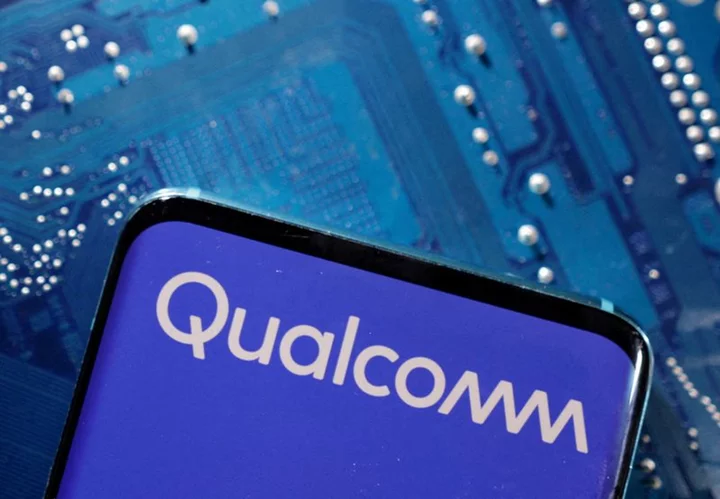
Qualcomm forecasts beast estimates, shares rise as smartphone slump eases
By Stephen Nellis and Chavi Mehta (Reuters) -Chip designer Qualcomm forecast first-quarter sales and profits above Wall Street targets on
2023-11-02 04:21

Disney+ launches cheaper subscription with ads
Disney has launched a new, cheaper subscription of its streaming service, with ads. The company will let subscribers pay £4.99 for the service if they are willing to have advertising injected at the start of films and inside TV shows. The advertising will be limited and users will see how long those ads are going to last, the company. Disney is just the latest in a range of subscription services, such as Netflix, to launch a cheaper version of the streaming service that is supported by advertising. The changes come amid a cost of living crisis and increasing competition for TV streaming subscriptions. As well as seeing ads, users on the new cheaper tier will be limited to watching two streams at once on one subscription, and will not be able to download offline. Netflix launched its ad-supported tier with similar limits, though it has restricted them somewhat in the time since. On Disney+, the more expensive ad-free tiers include the standard package at £7.99, or £79.90 annually, which has the same video and audio quality as the lower level but allows for downloads on up to 10 devices, while the premium model at £10.99, or £109.90, has improved video and audio quality and allows four devices to watch concurrently. The streaming giant has a host of series including The Bear, Elemental, and Coleen Rooney: The Real Wagatha Story. It also launched the new series following the Kardashian-Jenner family last year, titled The Kardashians, which follows on from its predecessor, Keeping Up With The Kardashians, in documenting the personal lives and business ventures of the siblings. General manager of Disney+ Europe, Middle East and Africa (EMEA), Luke Bradley Jones, said: “Today’s launch represents a significant milestone for Disney+ in the UK, offering customers the flexibility to select a plan that suits their needs and budget. “All of our customers can enjoy a wide range collection of award-winning original TV series and blockbuster movies, including FX’s The Bear, Elemental, and Coleen Rooney: The Real Wagatha Story, along with fan favourites like Season 2 of Marvel Studios’ Loki and the latest series of The Simpsons and Grey’s Anatomy.” Deborah Armstrong, country manager of the UK and Ireland for GM Media Networks and advertising EMEA, said: “Disney+ offers advertisers a prime opportunity to join our premium streaming platform, featuring our beloved brands and an exceptional line-up of movies and TV series. “The response from our clients and agencies has been overwhelmingly positive, firmly showcasing the quality of our content and the strong bond our brands share with audiences worldwide. “We’re partnering with a fantastic range of brands in all markets right from day one.” Additional reporting by agencies
2023-11-02 02:55
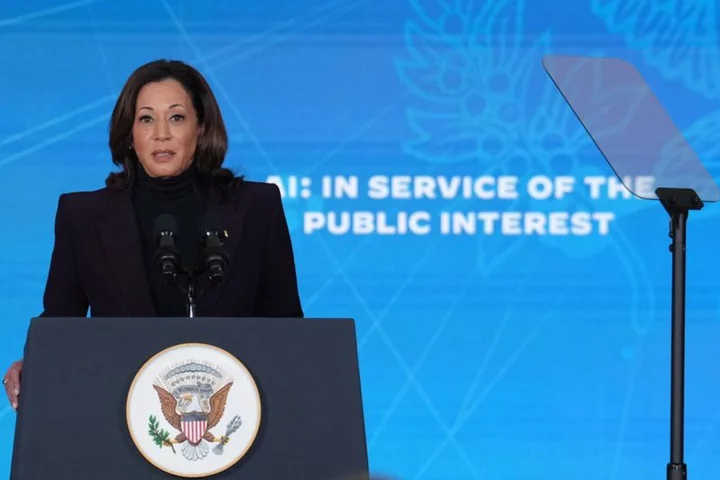
US Vice President Harris calls for action on "full spectrum" of AI risks
By Andrew MacAskill and Martin Coulter LONDON (Reuters) -U.S. Vice President Kamala Harris on Wednesday called for urgent action to
2023-11-02 00:46
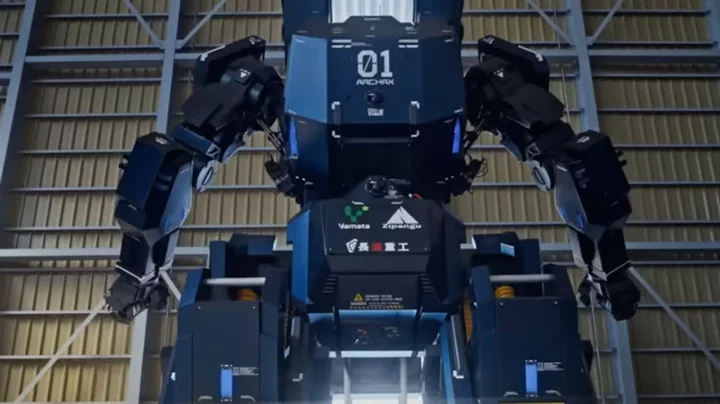
Giant anime 'Gundam' robots are being built to explore the Moon
A Japanese start-up company has revealed a 15-foot-tall robot with hopes of it one day exploring the moon. Tsubame Industries developed the $3 million (£2.5m) robot that resembles the "Mobile Suit Gundam" from a popular anime show. It will be displayed at the Japan Mobility Show set to take place until 5 November. Named after the avian dinosaur archaeopteryx, the Archax boasts a 'vehicle mode' in which it squats down onto its four legs and travels at the speed of six miles per hour. Ryo Yoshida, 25, chief executive of Tsubame Industries plans to build for disaster relief or to explore space in the future. "Japan is very good at animation, games, robots and automobiles so I thought it would be great if I could create a product that compressed all these elements into one," he said. "I wanted to create something that says, ‘This is Japan’." Yoshida shared early images of the Archax on X/Twitter, when Akinori Ishii, technical director at the Gundam Global Challenge, messaged him and got involved in the production. "On Earth, there are many specialized machines for special work," he said. "On a moon base, we are not able to have so many machines. So, maybe a human-like machine will be used in such a situation." The company reportedly aim to create an Archax prototype suitable to explore space by 2028, according to Nikkei Asia. How to join the indy100's free WhatsApp channel Sign up for our free Indy100 weekly newsletter Have your say in our news democracy. Click the upvote icon at the top of the page to help raise this article through the indy100 rankings.
2023-11-02 00:19

AMD soars as AI chip sales prediction bodes well for rivalry with Nvidia
By Samrhitha A (Reuters) -Shares of Advanced Micro Devices jumped 8% on Wednesday, after an upbeat AI chip sales forecast
2023-11-01 23:22
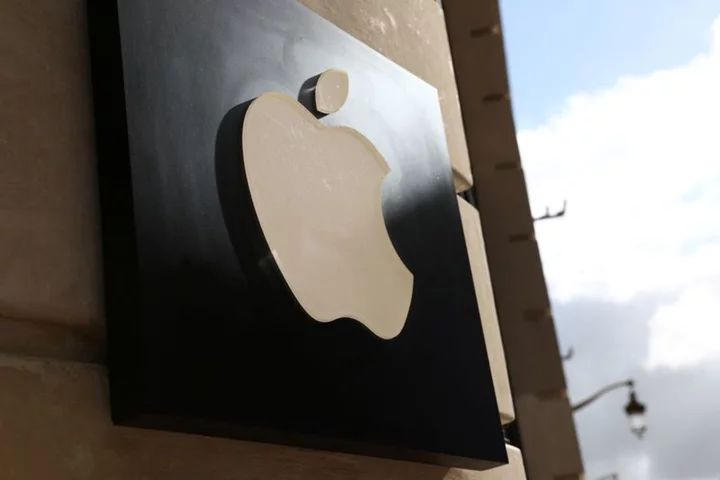
Mass lawsuit against Apple over iPhone batteries can go ahead, London tribunal rules
LONDON Apple Inc on Wednesday lost a bid to block a mass London lawsuit accusing it of hiding
2023-11-01 22:57
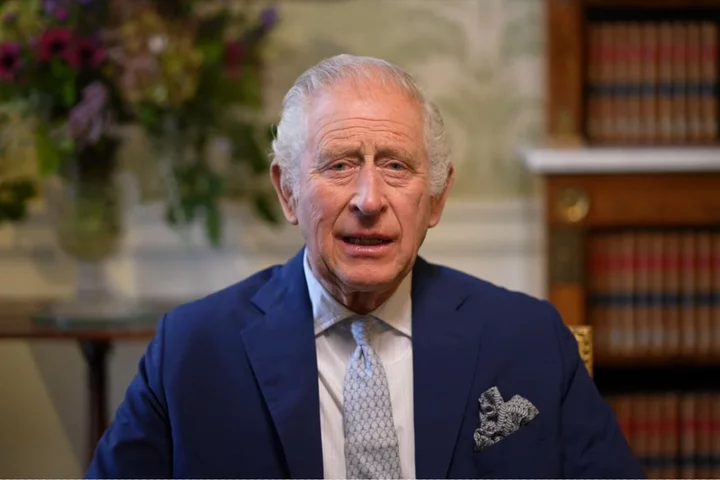
King warns of urgent need to ‘combat significant risks of powerful AI’
The King has hailed artificial intelligence (AI) as “one of the greatest technological leaps in the history of human endeavour” but warned of the urgent need to work together to combat its “significant risks”. In a video message for the opening session of the AI Safety Summit at Bletchley Park, the King stressed the need to make sure the technology remained “safe and secure”, and said the speed of its advancement could surpass even human understanding. He likened the “rapid rise of powerful artificial intelligence” to the world’s greatest scientific breakthroughs including the discovery of electricity and the splitting of the atom – and even the harnessing of fire. And he spoke of its potential to “transform life as we know it” for the better, possibly leading to cures for cancer and other diseases, and helping to create green energy. Charles, in footage recorded at Buckingham Palace before he left for his state visit to Kenya, said: “We are witnessing one of the greatest technological leaps in the history of human endeavour. “The rapid rise of powerful artificial intelligence is considered by many of the greatest thinkers of our age to be no less significant, no less important, than the discovery of electricity, the splitting of the atom, the creation of the world wide web, or even the harnessing of fire.” He added: “AI holds the potential to completely transform life as we know it to help us better treat, and perhaps even cure, conditions like cancer, heart disease and Alzheimer’s; to hasten our journey towards net zero and realise a new era of potentially limitless clean, green energy – even just to help us make our everyday lives a bit easier. “However, if we are to realise the untold benefits of AI, then we must work together on combating its significant risks too.” The AI summit sees representatives of nearly 30 countries, including the US, France and China, meeting with leading AI companies and civic society groups to discuss the risks of the emerging technology. Delegates have already agreed on a world-first statement – the “Bletchley declaration on AI safety” – it was announced on Wednesday. The King thanked those attending for laying the foundation for a consensus to ensure “this immensely powerful technology is, indeed, a force for good in this world”. Highlighting the need to keep on top of the technology, the King said: “AI continues to advance with ever greater speed towards models that some predict could surpass human abilities, even human understanding. “There is a clear imperative to ensure that this rapidly evolving technology remains safe and secure.” He said transitions such as AI always presented “profound challenges, especially in preparing for unintended consequences”. But Charles said: “It is incumbent on those with responsibility to meet these challenges: to protect people’s privacy and livelihoods, which are essential to both our economic and psychological well-being, to secure our democracies from harm, and to ensure the benefits of new technology are shared by all.” Describing the international community’s co-operation on climate change, the King added: “We must similarly address the risks presented by AI with a sense of urgency, unity and collective strength.” Read More Kamala Harris arrives in the UK ahead of AI safety summit Study finds ‘deepfakes’ from Ukraine war undermining trust in conflict footage More than 500 potential cyber attacks logged every second, BT says AI being used to create child abuse imagery, watchdog warns ChatGPT and other chatbots ‘can be tricked into making code for cyber attacks’ Tinder adds Matchmaker feature to let friends recommend potential dates
2023-11-01 21:55
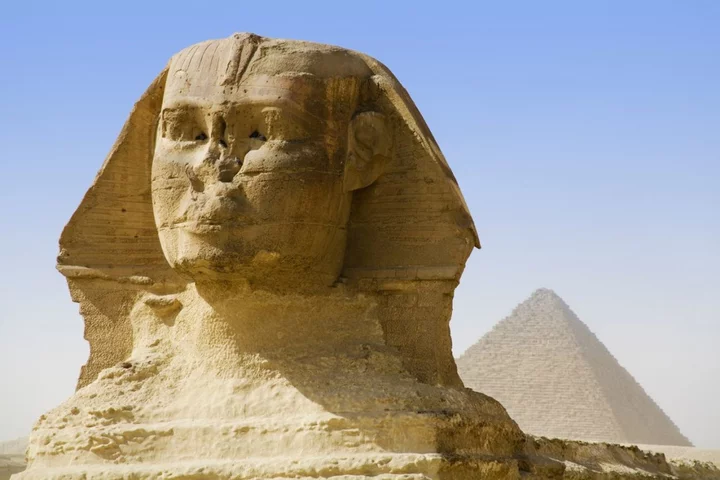
Scientists make key discovery about mysterious origins of Egypt’s Great Sphinx
The feats achieved by the Ancient Egyptians have long flummoxed even the most renowned experts. For example, how on earth did they build the Great Pyramid of Giza? It’s taken centuries for scientists and archaeologists to come up with an answer, and even that’s not set in stone. But now, researchers believe they’ve finally worked out how the Great Sphinx was made more than 4,500 years ago. Sure, there’s a pretty broad consensus about how the face of the giant limestone statue was created – it was most likely hand-carved by stone masons. But the imposing, multi-layered body had continued to evade explanation. However, researchers at New York University, have finally concluded that the body came about. And it wasn’t all thanks to the masonry skills of local workers. They believe that the shape was sculpted by Mother Nature herself, in the form wind. “Our findings offer a possible ‘origin story’ for how Sphinx-like formations can come about from erosion,” Leif Ristroph, senior author of the study, said in a statement. “Our laboratory experiments showed that surprisingly Sphinx-like shapes can, in fact, come from materials being eroded by fast flows.” For their study, the team took harder rock encased in mounds of soft clay to mimic the terrain along the Nile River in northeastern Egypt. They then washed over these formations with a fast-flowing stream of water to replicate the wind and, in the end, the clay assumed a Sphinx-like shape. The resulting form consisted of a lion’s “head,” “neck,” “paws” laid out in front and an arched “back". “There are, in fact, yardangs (rock features formed by air erosion) in existence today that look like seated or lying animals, lending support to our conclusions,” Ristroph pointed out. Still, we’re sure Ristroph would be the first to admit that he and his colleagues weren’t the first to come up with the aeolian erosion theory. In 1981, geologist Farouk El-Baz suggested that the iconic Sphinx was originally a flat-topped shape that was worn down by wind over time. Furthermore, El-Baz believed that the builders of Ancient Egypt would have known of these natural processes, and so carefully selected the shapes of their most iconic structures to withstand them. "Today, the pyramids of Giza exist in perfect harmony with their windy environment," the scientist said back in 2001. "Had the ancients built their monuments in the shape of a cube, a rectangle, or even a stadium, they would have been erased by the ravages of wind erosion long ago." Nevertheless, the New York University team were the first to show exactly how this phenomenon could have occurred, and their findings have broader implications. "The work may also be useful to geologists as it reveals factors that affect rock formations—namely, that they are not homogeneous or uniform in composition,” Ristroph said. "The unexpected shapes come from how the flows are diverted around the harder or less-erodible parts." Sign up for our free Indy100 weekly newsletter Have your say in our news democracy. Click the upvote icon at the top of the page to help raise this article through the indy100 rankings
2023-11-01 20:25
